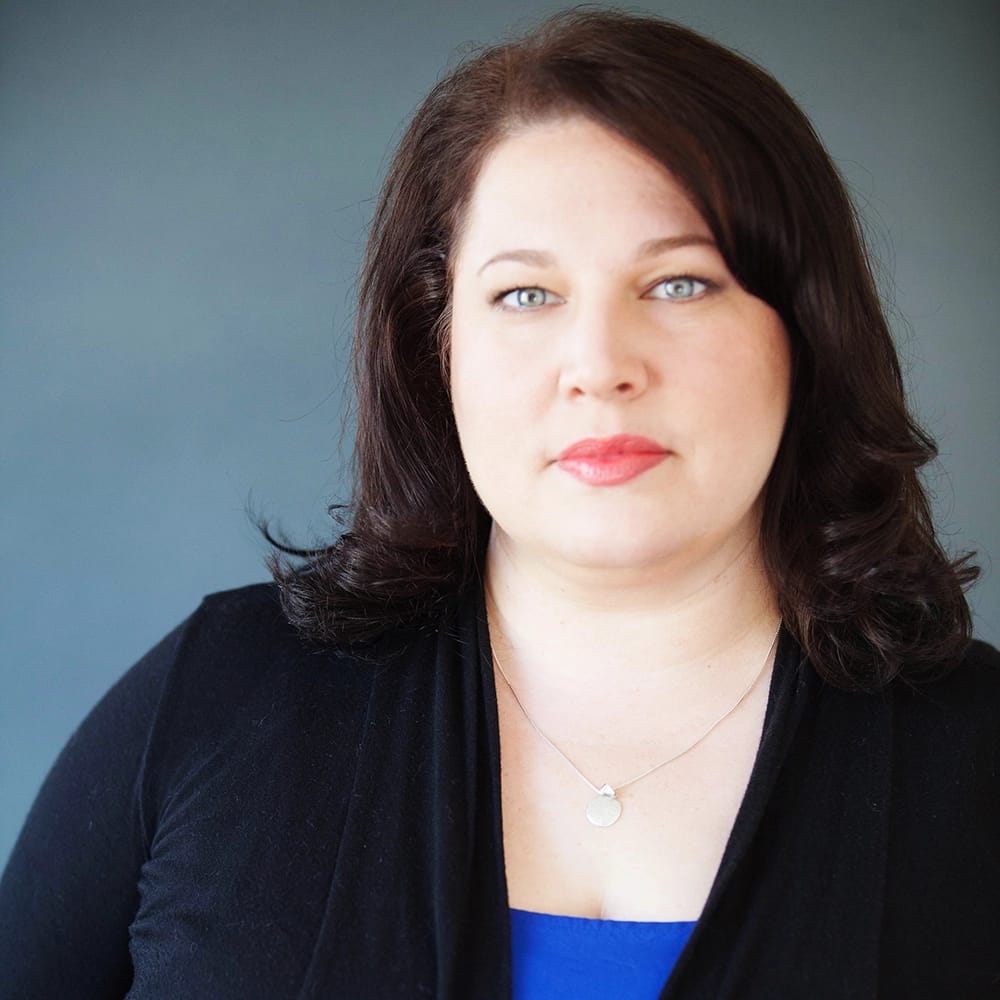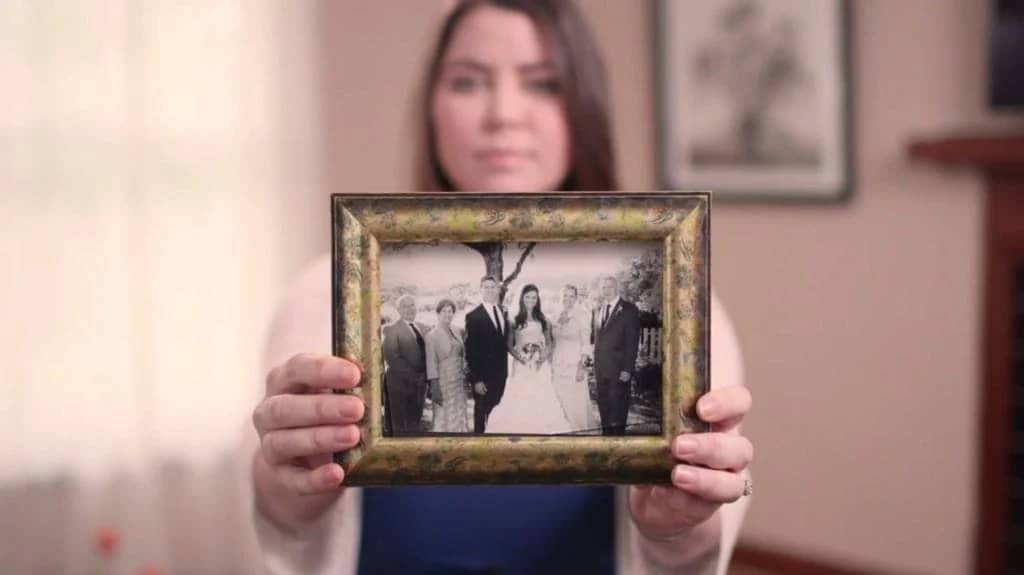
Rabbi Sarah Rensin shared her story in November of 2023.
Shortly after finishing rabbinical school, I had people in the Jewish community calling, asking me to visit with spiritually distressed dying people. Once I started getting these calls, I decided to finish my chaplaincy education, then I started working with hospice full time. As a rabbi and a hospice chaplain, I’ve helped people who used medical aid in dying create a spiritual ending that provides them and their family peace, and I urge other chaplains to embrace this holy work. It’s been some of the most sacred work I’ve ever done.
One particular experience opened my eyes to the need for medical aid in dying. A medical director reached out to ask if I would talk to a Jewish doctor who was under her care and was experiencing significant suffering. I spent two hours in my car on the phone talking to him, parsing out the ethics of medical aid in dying, and he said to me: “At what point is enough enough? When has one suffered enough that it’s OK with God to go?” That was my introduction to this option, and by the end of our conversation, I knew that I fully supported it. And every patient I’ve been through medical aid in dying with has solidified my support.
Since then I have been present with over a dozen people who have used medical aid in dying. I have been able to help patients have the spiritual ending they want, and they have taught me what that looks like for them, and I’ve used that knowledge to help others. Instead of the experience potentially being one that feels clinical, where the focus is on the medication and the process, I create a sacred space and facilitate goodbyes with the patient’s loved ones. The experience becomes spiritual, and the feedback has been of deep gratitude.
Each experience is its own, and the spiritual ending is very much up to the patient and what that looks like for them. It isn’t just about being present, though being available to explain what is normal in the dying process helps relax loved ones. Another person on a hospice team doesn’t have the same comfort and authority in officiating a space that a clergy member does. We know how to bring people in, give them the space to speak or sit in silence to honor their feelings, and how to create a spiritual environment for a peaceful transition.
Beyond helping to facilitate saying goodbye, I’ve learned that often patients want to do a meditation. I ask them beforehand: Who do you want to see? Where do you want to be? Then, on the day, I walk them through their meditation. Sometimes the patient doesn’t know what it can be. I had a patient who cared deeply for surfing, and I recognized that for him that was his spirituality, so we did a paddle out as his meditation. It made him feel comfortable and safe.
Sadly, however, most clergy and hospice chaplains do not readily volunteer their spiritual services to be present with someone using medical aid in dying. Clergy leave it to the patient to ask for their presence. But most people don’t ask because they assume that clergy will be unwilling to be with them through that experience or they think clergy will try to dissuade them from doing it.
I was one of four chaplains at a hospice, and I was the only one who had been present with people who had used medical aid in dying. They had been with none. Why? Because they left it to the patient to propose the idea. I asked people, “Do you want me to be here for you?” and they said yes. It’s a disservice not to openly offer to be with people during their last moments.
Patients have felt a lot of comfort in knowing there was a clergy member there to support their loved ones. There’s also a lot of comfort in just knowing there’s a spiritual person who supports your decision, and doesn’t think that you’re being damned by whatever God it is you believe or don’t believe in. That support, no matter what that person’s faith looks like, or lack of faith looks like, seems to be really important to people.
But arbitrary hospital and hospice policies on medical aid in dying serve as a barrier to patients having a peaceful and spiritual end.
As a patient, you should assume that a hospital or hospice will not share information about medical aid in dying with you unless you specifically ask for information about it. Some call it a policy of neutrality, but it is unethical to not present patients with all of their end-of-life options — all of them.
When knowledge is withheld it is not neutrality; it is controlling the narrative through the promotion of ignorance. You will never make the choice you do not know you have, because you were never given the freedom to make that choice. Neutrality involves letting people know what options they have and giving them the ability to make that choice for themselves. Just as doctors should inform patients that hospice is a choice, so too should they inform patients that medical aid in dying is a choice.
There are patients who don’t know that they’re eligible, or who asked for medical aid in dying before they were eligible and don’t realize they are now eligible, who say things like: “If only there were a way for this to end,” and staff may be forbidden from responding, “Do you know you have the option of medical aid in dying?”
Policies are random. Woefully, you often don’t know if a hospice or hospital staff members’ hands are tied. That includes chaplains’ ability to be with someone during their last moments. Some policies say staff can be present with a patient but not in the moment of ingestion. Some say staff can’t be there at all. Some say staff can’t mention the option without clearly being prompted. It’s not one rule across the board, and sometimes people are in threat of losing their job just for saying to a patient that this is an option.
I quit my job at my last hospice because they had a policy in place that didn’t allow for any employee to mention medical aid in dying as an option without threat of termination, and that caused me deep moral distress. I could no longer sit in silence while I watched my patients suffer in imposed ignorance.
I would like to see policies change so that patients are given transparent information on all of their end-of-life options and be provided the opportunity for clergy to be with them. All people deserve the option to have clergy sit with them at the end of their lives. Our job is to be with people on their journey, including when they choose medical aid in dying to compassionately end their suffering.

Nothing advances our common cause of improving end-of-life care like real stories. Inspire others and drive change by sharing your story today.
Mail contributions directly to:
Compassion & Choices Gift Processing Center
PO Box 485
Etna, NH 03750